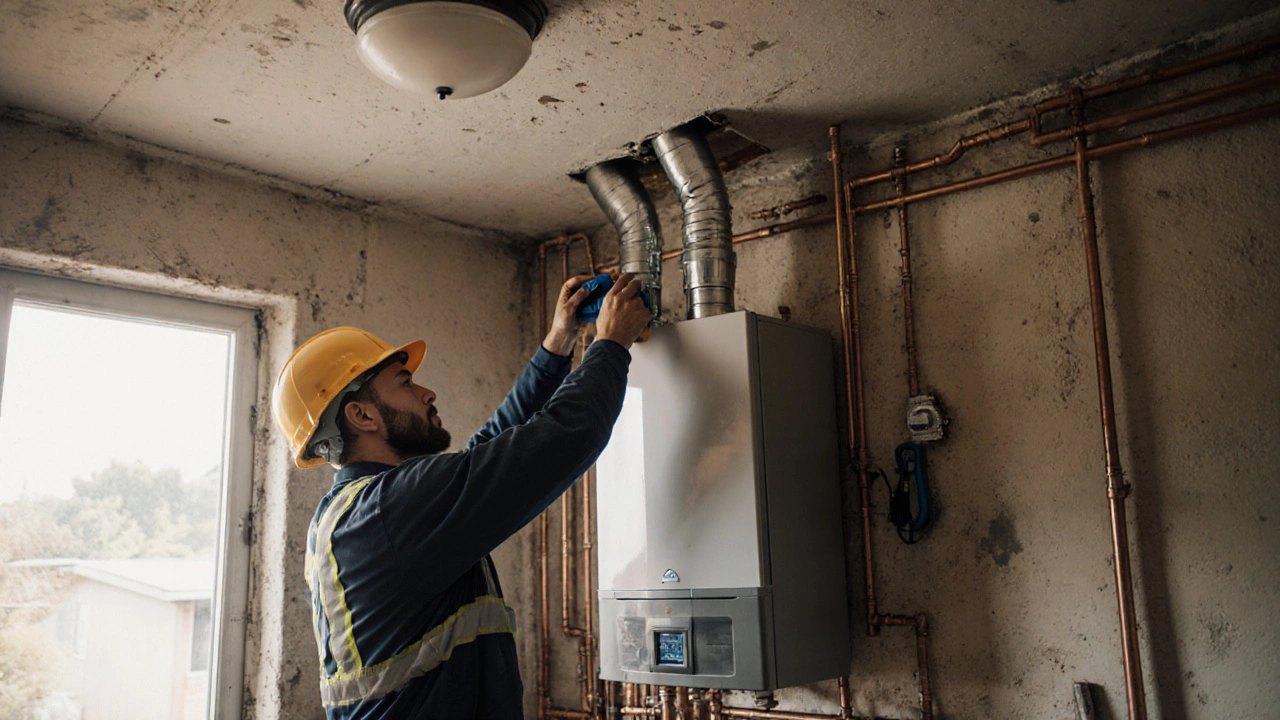Boiler Installation: A Practical Guide for Homeowners
Thinking about a new boiler? You’re not alone. A fresh boiler can cut bills, boost comfort, and keep your home safe. But the process isn’t as simple as plugging in a kettle. Knowing the steps, costs, and safety checks will save you time, money, and headaches.
Key Steps in a Boiler Installation
First, a qualified engineer will assess your property. They check the size of your home, existing pipework, and the type of fuel you want (gas, oil, or electric). This survey decides the boiler size you need – too small and you’ll freeze, too big and you waste energy.
Next comes the removal of the old unit. A professional disconnects the gas or oil supply, drains the water, and safely disposes of the old boiler. This part is crucial – improper handling can lead to gas leaks or water damage.
Installation itself follows a strict order:
- Mount the new boiler on a sturdy wall bracket.
- Connect the pipework, making sure each joint is sealed with the right tape or compound.
- Hook up the gas line or electric feed, following the manufacturer’s guidelines.
- Install the condensate pipe if you have a condensing model – this drains away the acidic water created during operation.
After everything is in place, the engineer runs a series of tests. They check for leaks, verify pressure settings, and fire up the system to make sure it heats properly. A final safety check includes a carbon monoxide test if you’re using gas.
How Much Should a Boiler Installation Cost?
Price varies a lot, but most UK homeowners see a range between £2,000 and £4,500 for a full install. The main factors are:
- Boiler model – high‑efficiency condensing boilers cost more upfront but save on bills.
- Fuel type – gas is usually cheaper to install than oil or electric.
- Complexity – if you need new pipework, extra radiators, or a flue relocation, the price climbs.
Don’t forget the ongoing maintenance cost. A yearly boiler service (like the one we recommend in our "How often should you get your boiler serviced?" post) keeps the unit running efficiently and helps avoid expensive breakdowns.
When you get quotes, ask for a breakdown: labour, parts, disposal, and any extra work. Transparent pricing lets you compare apples to apples and spot hidden fees.
While DIY boiler installation might look tempting, it’s a risky move. Working with gas or oil requires certification, and a mistake can lead to dangerous leaks or void your warranty. In the UK, regulations demand a Gas Safe registered engineer for any gas work. Skipping that rule not only endangers your family but also breaks the law.
So, how do you choose the right installer?
Look for a company with good reviews, a clear warranty, and proper accreditation (Gas Safe, OFTEC for oil, or NICEIC for electrical). Ask for references and check that they offer a detailed post‑installation checklist.
Finally, plan for the future. If you’re renovating or adding rooms, discuss expansion options now. A well‑sized, efficiently installed boiler will serve you for 10‑15 years with regular servicing.
Bottom line: a professional, well‑planned boiler installation pays off in lower bills, reliable heat, and peace of mind. Use this guide to ask the right questions, compare quotes, and make a confident choice for your home’s heating system.
Why Does It Cost So Much to Replace a Boiler?
0 Comments
Boiler replacement costs so much because it includes licensed labor, safety compliance, new piping, system flushing, and regulatory paperwork - not just the unit itself. Skipping steps can be dangerous and costly in the long run.
Read MoreWhy Boiler Replacement Costs So Much: Hidden Fees, Labour, and Supply Chain Secrets
0 Comments
Boiler replacement can drain your wallet fast. Learn why prices are so high, what goes into the cost, and real-world tips for saving money on your next heating upgrade.
Read MoreDo Plumbers Change Boilers? What You Need to Know
0 Comments
Curious if plumbers actually replace boilers? This article breaks down who is qualified, what to expect during a boiler swap, and how to spot a pro from an amateur. Get clear tips for finding the right tradesperson and avoid paying for work not done to code. Discover how to prep your home, what it should cost, and a few red flags to watch for before you agree to anything.
Read More

